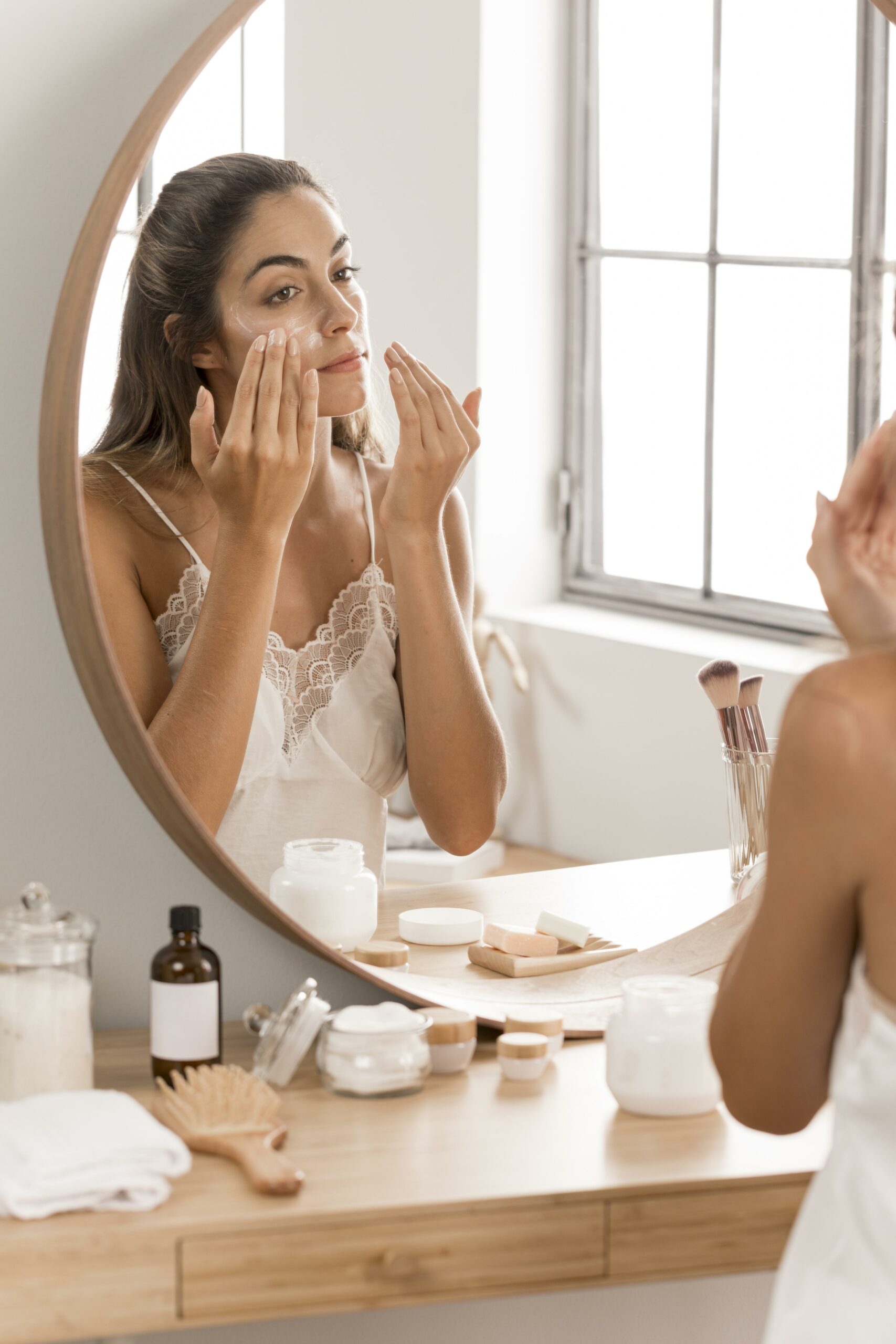Maintaining a simple and effective skincare routine is a great approach for many people. Overcomplicating your skincare routine can lead to confusion, irritation, and may not necessarily yield better results. Here’s a simplified skincare routine that covers the basics:
Cleansing: Use a gentle cleanser to remove dirt, makeup, and excess oils. Cleansing twice a day (morning and night) is usually sufficient for most people.
Moisturizing: Apply a moisturizer suited to your skin type (dry, oily, combination) to keep your skin hydrated. This step helps maintain a healthy moisture barrier.
Sunscreen: Sun protection is essential. Apply a broad-spectrum sunscreen with at least SPF 30 in the morning, even on cloudy days. Reapply if you’re outdoors for an extended period.
Nighttime Routine (optional): If you want to add more to your routine, consider these steps at night:
Serum (optional): Depending on your skin concerns, you can use a serum with ingredients like hyaluronic acid, vitamin C, or retinol. Be cautious with retinol and introduce it gradually as well as make sure to use daily mineral sunscreen.
Eye Cream (optional): If you have specific eye concerns like puffiness or dark circles, you can use an eye cream which can be helpful at keeping the skin looking hydrated. Eye creams with retinol are also helpful with fine lines under the eyes.
Exfoliation (1-2 times a week): Exfoliate your skin to remove dead skin cells and improve skin texture. You can choose between chemical exfoliants (like AHAs or BHAs) or physical exfoliants (gentle scrubs). Do not over-exfoliate, as it can irritate your skin.
Masks (1-2 times a week, optional): You can use masks for additional skincare benefits, such as hydration, clarifying, or soothing. Choose masks based on your skin’s needs.
Hydration: Stay hydrated by drinking plenty of water. It is important to have a well-hydrated body if you want healthy skin.
Balanced Diet: A diet rich in fruits, vegetables, and antioxidants can support skin health from within.
Adequate Sleep: Ensure you get enough sleep, as it plays a significant role in skin rejuvenation.
Stress Management: If you have high stress levels this can result in negatively impacting your skin. Practicing stress-reduction techniques like yoga, meditation, or deep breathing.
Remember, it’s crucial to choose products that are suitable for your specific skin type and concerns. If you have persistent skin issues or are unsure about which products to use, consider consulting a dermatologist or skincare professional for personalized advice. Additionally, when introducing new products into your routine, patch test them first to ensure they don’t cause any adverse reactions. Keep your routine simple and consistent, and be patient, as it may take time to see noticeable improvements in your skin.

